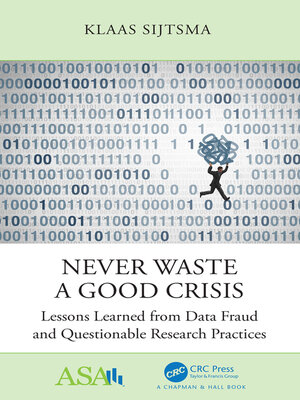Never Waste a Good Crisis
ebook ∣ Lessons Learned from Data Fraud and Questionable Research Practices · ASA-CRC Series on Statistical Reasoning in Science and Society
By Klaas Sijtsma

Sign up to save your library
With an OverDrive account, you can save your favorite libraries for at-a-glance information about availability. Find out more about OverDrive accounts.
Find this title in Libby, the library reading app by OverDrive.



Search for a digital library with this title
Title found at these libraries:
| Library Name | Distance |
|---|---|
| Loading... |
This book covers statistical consequences of breaches of research integrity such as fabrication and falsification of data, and researcher glitches summarized as questionable research practices. It is unique in that it discusses how unwarranted data manipulation harms research results and that questionable research practices are often caused by researchers' inadequate mastery of the statistical methods and procedures they use for their data analysis. The author's solution to prevent problems concerning the trustworthiness of research results, no matter how they originated, is to publish data in publicly available repositories and encourage researchers not trained as statisticians not to overestimate their statistical skills and resort to professional support from statisticians or methodologists.
The author discusses some of his experiences concerning mutual trust, fear of repercussions, and the bystander effect as conditions limiting revelation of colleagues' possible integrity breaches. He explains why people are unable to mimic real data and why data fabrication using statistical models stills falls short of credibility. Confirmatory and exploratory research and the usefulness of preregistration, and the counter-intuitivenature of statistics, are discussed.
The author questions the usefulness of statistical advice concerning frequentist hypothesis testing, Bayes-factor use, alternative statistics education, and reduction of situational disturbances like performance pressure, as stand-alone means to reduce questionable research practices when researchers lack experience with statistics.
An interview with the author can be found here: https://www.tilburguniversity.edu/magazine/overview/former-rector-sijtsma-turn-statistician-fight-fraud-and-sloppiness.







